5 Frequently Asked Questions about 4-Color Process Printing
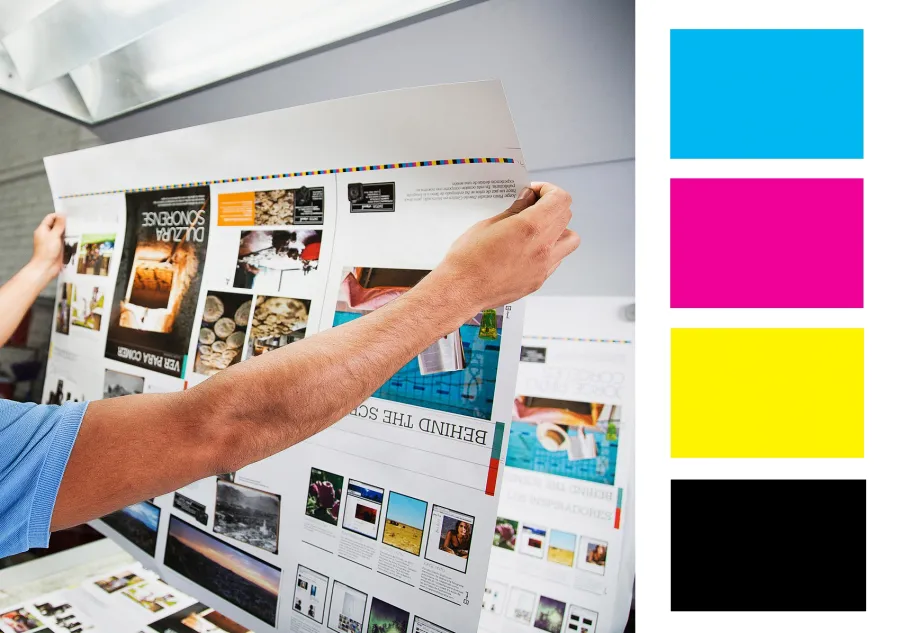
estimated reading time: 6 minutes
1. What is Four Color Process Printing?
Four Color Process Printing is a method of printing that
uses only four ink colors - Cyan, Magenta, Yellow, and Black. These four ink
colors are known collectively as CMYK (if you'd like to know why Black is
abbreviated as "K", click the link at the bottom of this article for the
explanation).
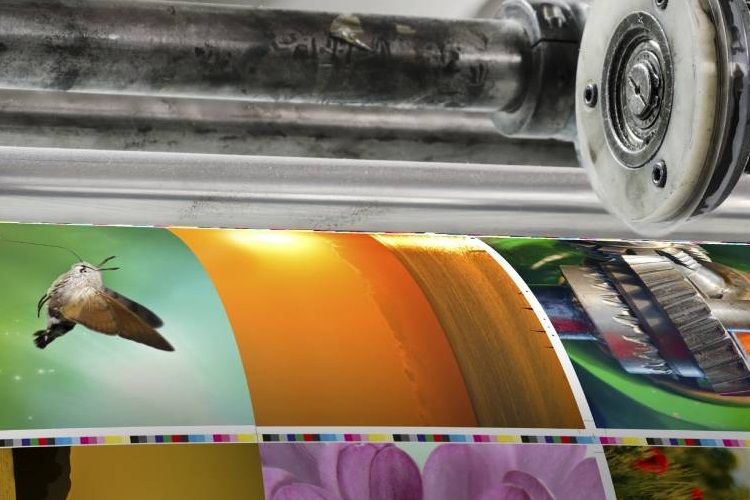
The four CMYK ink colors are used by commercial printing
presses to create full-color printing. By layering these four inks in various proportions,
about 16,000 colors can be produced.
Four Color Process Printing is referred to as a "Process"
because the four ink colors are applied to the paper one after the other. As
the paper travels through the press, the colors are applied in successive
layers of tiny ink dots.
It is this successive layering process that gradually builds
all the colors desired for the project. The four colors of ink dots, applied at
various angles and concentrations, intermingle on the paper to form the diverse
shades and hues our eyes interpret as full color printing.
If you were to look at a full color image that has been
commercially printed, such as a photo in a magazine or brochure, the image will
appear very vivid and detailed to the naked eye. But if you were to look at the
same image under powerful magnification, you will clearly see the individual
dots of Cyan, Magenta, Yellow, and Black ink.
Try it for yourself and you will learn something very
interesting about four color process printing. This time-tested printing method, known for creating high quality images, is actually creating illusions. Complicated
illusions that trick our brain into seeing images that exhibit hundreds of variations
in color and tone, when in reality there are only dots of four colors - Cyan, Magenta,
Yellow, and Black.
Illusions or not, Four Color Process Printing is an amazing
process that has long been the industry standard. In fact, it was developed over
a century ago and is used worldwide to produce colorful and detailed print
materials.
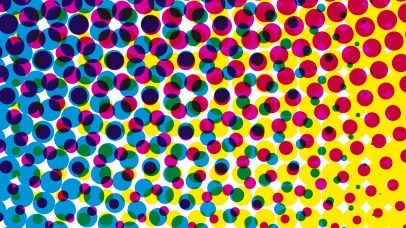
2. Can the Four Color Process produce all Colors?
Even though Four Color Process Printing can produce thousands
upon thousands of colors, there are still some limitations within its gamut of
colors. Some colors, particularly those very bright or saturated, can sometimes be difficult to achieve with Four Color
Process Printing.
This is where Pantone colors can often save the day. Pantone is
an American company headquartered in Carlstadt, New Jersey. In the early 1960s,
Pantone developed a proprietary color system known as the Pantone Matching
System (PMS). There are currently over 2,000 different colors within the
Pantone Matching System, which helps expand the color pallet available for
print projects.
Unlike 4-Color Process Printing, which builds colors on the
paper by layering Cyan, Magenta, Yellow, and Black ink dots on the paper, Pantone
colors are pre-mixed from established formulas before being placed into the
printing press.
Also known as PMS or "Spot" colors, Pantone colors are
generally applied as solid, standalone ink impressions on the paper. However,
they are sometimes used in conjunction with the four CMYK process colors.
Because Pantone colors are very consistent due to their exacting
formulations, they are especially popular for corporate logos, taglines, packaging and
other branding purposes.
3. What are the primary advantages of Four Color Process Printing?
Widespread Availability - Four Color Process Printing is the
industry standard, so it is available at all commercial printing facilities and
most retail print shops. This makes it readily accessible for businesses as
well as individuals.
Cost Effectiveness - In addition to being so widely available, Four
Color Process Printing can produce a broad spectrum of colors using only four
ink colors. This greatly reduces the need for multiple Pantone colors.
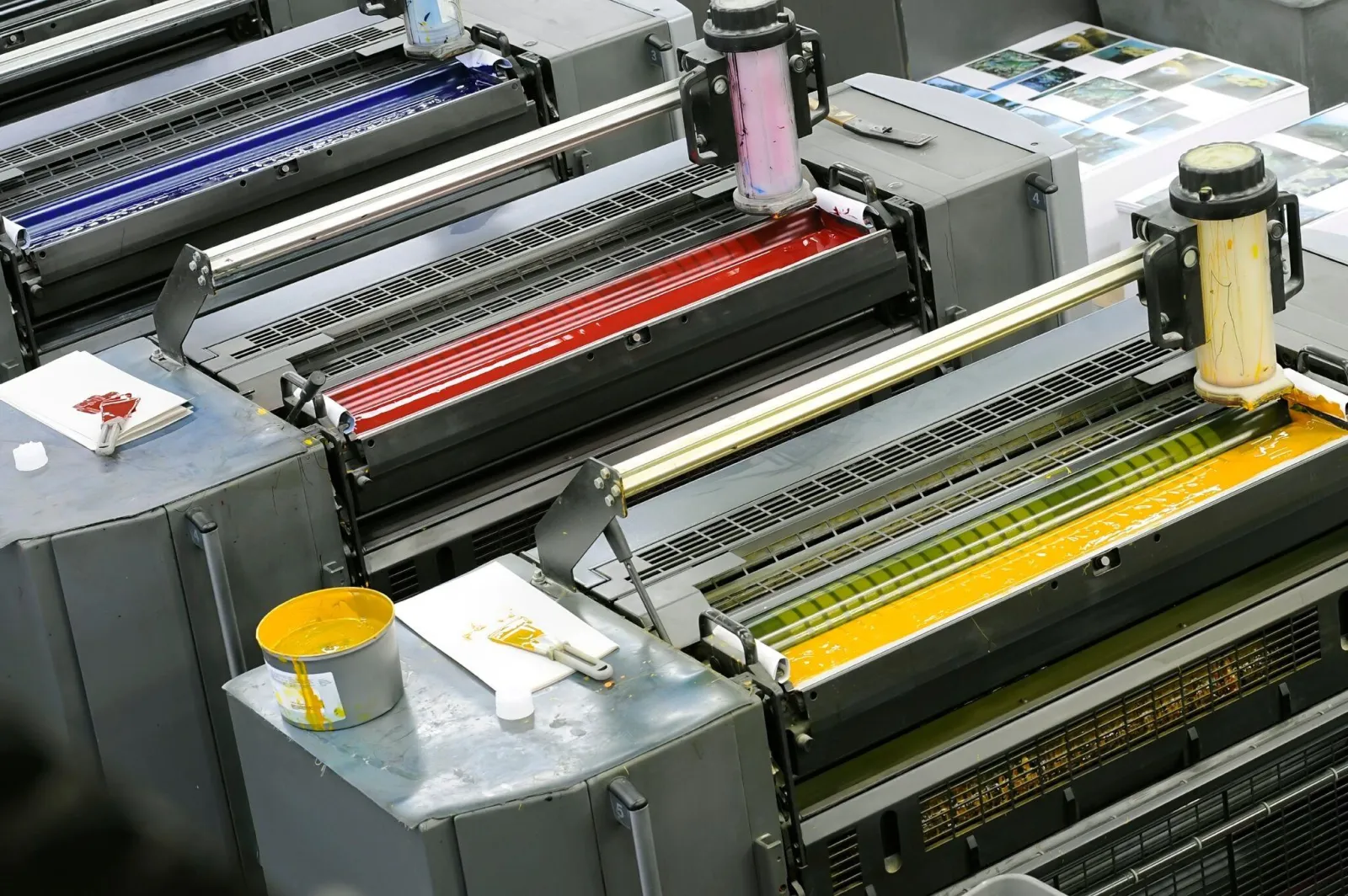
Versatility - Four Color Process Printing is suitable for almost
all types of print projects (see answer to question #4 below). Also, this printing process can be
used on a wide array of substrates, including paper, cardstock, synthetics, label stock,
fabric, and more.
High Quality - Four Color Process Printing is particularly
effective for detailed and complex images, making it ideal for print projects that have high-quality photographs and intricate designs.
Digital and Offset Production - Four Color Process Printing is
compatible with both digital and offset printing technologies, so it is well-suited
for production runs of all sizes.
Overall, the Four Color Process method provides a good balance
of quality, cost-effectiveness, and versatility, making it a reliable choice
for a wide range of full-color print projects.
4. What types of print projects are created with the Four Color Process?
Any print project that requires an accurate representation
of full color images will need to use 4-Color Process Printing. Hence, this printing method
is used extensively around the globe for a wide variety of applications.
Common examples of projects that are frequently printed with
the Four Color Process include…
> Brochures, flyers, catalogs, door hangers, rack cards, table tents, and other promotional materials used to engage customers while showcasing products and services.
> Presentation folders, product sell sheets, business cards, and other sales aids that help convey trust, quality, and professionalism during the selling process.
> Magazines, newsletters, journals and other periodicals that use colorful imagery to capture and hold the interest of readers.
> Novels, comics, children's books, cookbooks, how-to books, and any other books that employ the creative use of color on the cover and/or pages to draw attention and stimulate interest in the subject matter.
> Posters, banners, wall calendars, and other printed pieces that use a bold and eye-catching format.
> Postcards, mailers, pamphlets, and other direct mail pieces
that need a colorful and impactful message to help them stand out from the regular
mail.
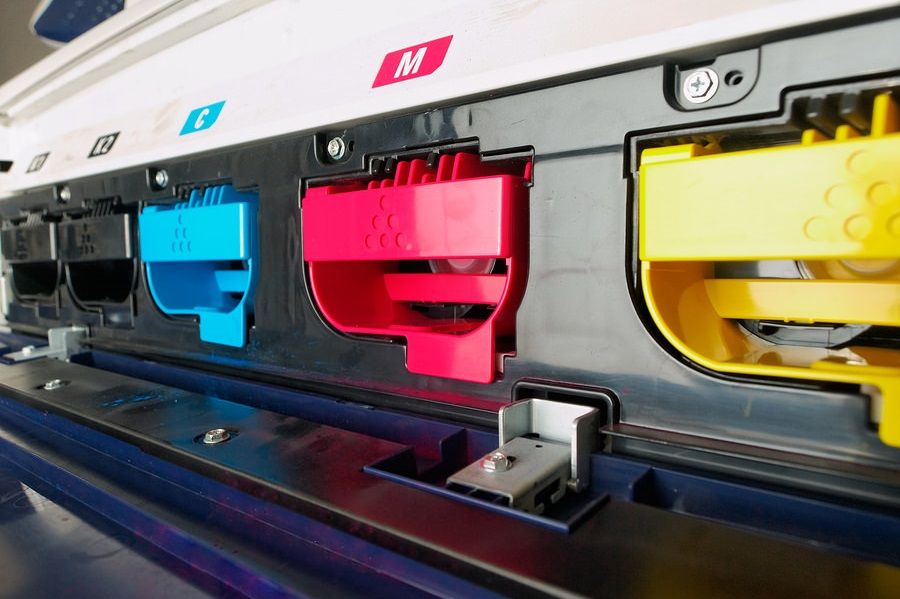
5. What are some other names for Four Color Process Printing?
Four Color Process Printing is referred to by many different
names. Here are some of the alternative names you may encounter…
"Four Color Printing" or "4-Color Printing" - a direct
reference to the use of four ink colors
"CMYK Printing" - an abbreviation of the four ink colors
used in this process: Cyan, Magenta, Yellow, and Black (Key).
"Full Color Printing" - this emphasizes the full range of
colors that can be produced by combining the four CMYK inks
"Process Color Printing" or simply "Process Printing" - this
refers to the process of layering the four ink colors to achieve the desired
output
"4CP" - a simple abbreviation for Four Color Process
"4/4 Printing", "4/1 Printing", or "4/0 Printing" - this is a
common industry shorthand used in conjunction with Four Color Process Printing.
4/4 (pronounced "4 over 4") means that both sides of a sheet are printed as Four Color Process. 4/1 (pronounced "4 over 1") means that the face of a sheet
is printed as Four Color Process but the reverse of the sheet is only printed
with one ink color (usually Black). 4/0 (pronounced "4 over Zero") means that
the face of a sheet is printed as Four Color Process but the reverse of the
sheet is not printed.
Looking for 4-Color Printing Services at an Affordable Price?
Color Vision is a full-service provider of commercial
printing services. Over the past 40+ years, we have developed a strong
reputation in the printing industry by offering 4-Color Printing at affordable
prices. Because we offer both digital and offset printing services, we can
assist with short, medium, and long run projects.
So whatever your 4-Color Printing needs may be, just give us
a call at 800-543-6299 to discuss your project. Or, if you prefer to use
our Quote Request form to send us your project's specifications, we
will be happy to email you a quote.
As always, we look forward to assisting with your next print
project!
Related Article:
Why is the color Black designated by the letter "K" in CMYK?
Related Articles
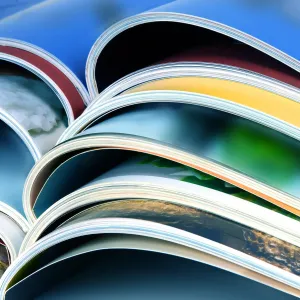
Printing Ink: What does “Heavy Coverage” mean?
Read This Article
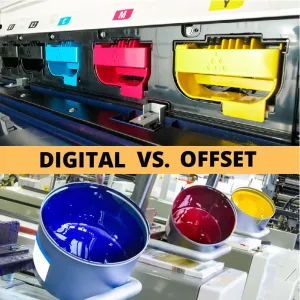
Which Process is Better? Digital Printing vs Offset Printing
Read This Article

What are Buckslips? The Cheapest Form of Print Marketing!
Read This Article

5 Frequently Asked Questions about 4-Color Process Printing
Read This Article